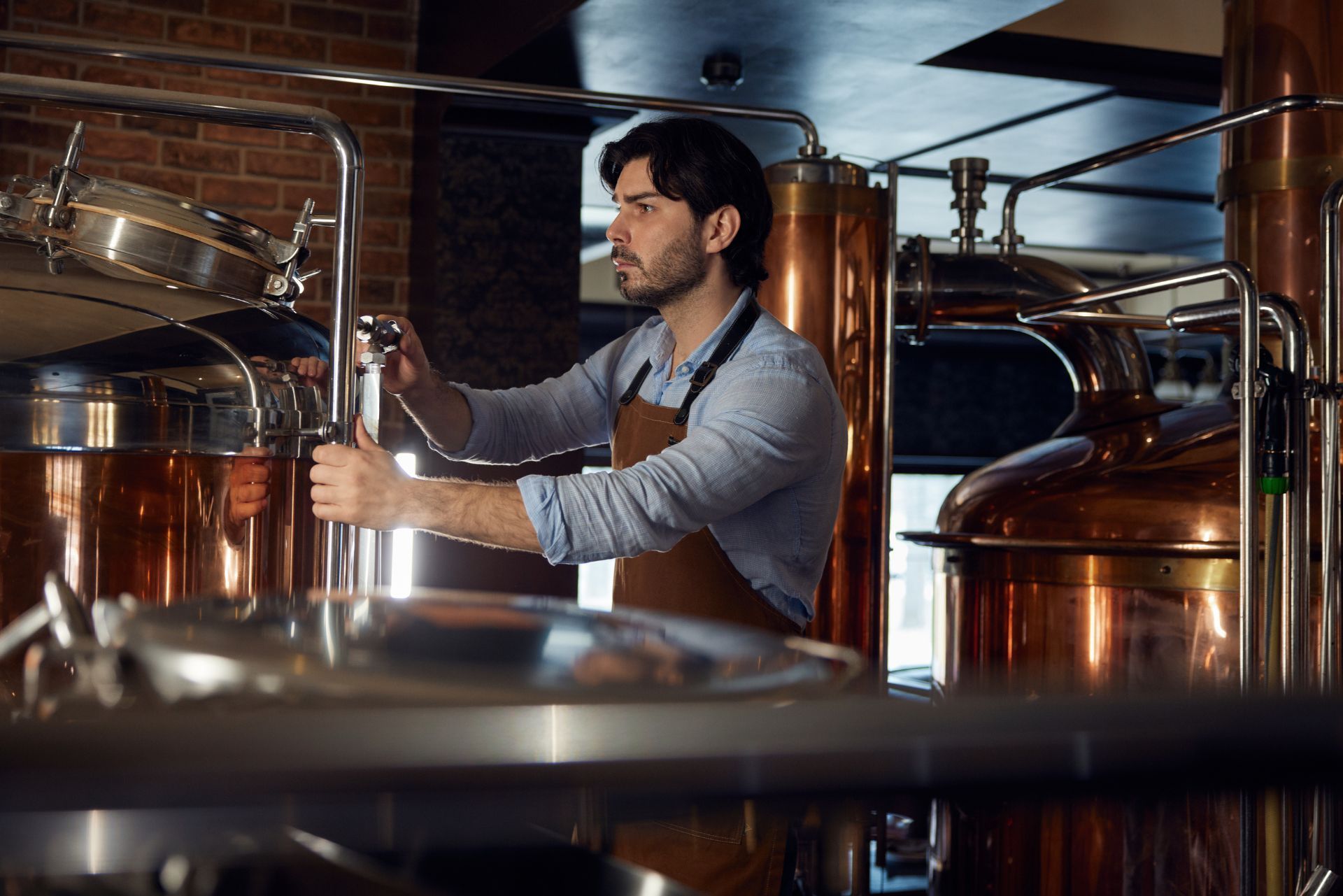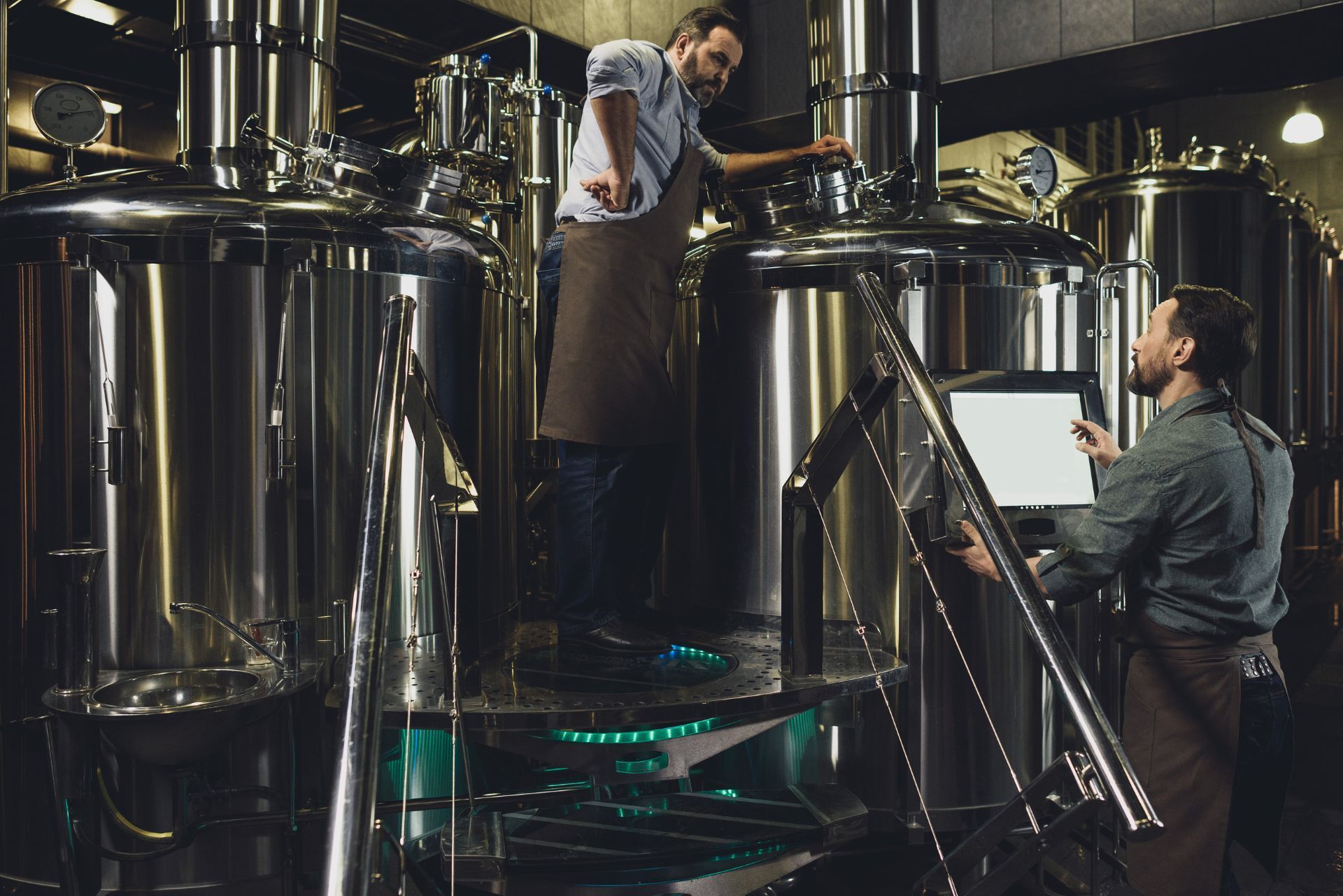Top 3 Recommended Policies

The craft brewing and distilling industries have experienced remarkable growth over the past decade, becoming vibrant hubs of innovation and community engagement. However, recent market shifts and operational challenges have underscored the importance of comprehensive insurance coverage tailored specifically for breweries and distilleries. Whether you’re a small craft brewer or an established distillery, understanding the nuances of insurance in this sector is crucial to protecting your business from financial risks and ensuring long-term sustainability.
In this article, we'll explore the key aspects of brewery and distillery insurance, examine current industry trends, and highlight why specialized coverage is more essential than ever in today’s complex market environment. Insights from industry experts and recent market data will provide a well-rounded view of the challenges and opportunities facing craft alcohol producers.
Understanding the Unique Risks in Brewing and Distilling
Brewery and distillery operations are exposed to a variety of risks that differ significantly from other types of businesses. From the production process to distribution and retail, each stage presents potential hazards that insurance must address.
One of the primary concerns is the handling and storage of volatile substances such as alcohol and flammable materials. This increases the risk of fires and explosions, making property and liability coverage essential. Additionally, the manufacturing equipment used in brewing and distilling is often expensive and specialized, requiring protection against damage or breakdown.
Moreover, product liability is a critical area of risk. If a product causes harm or illness, the business could face costly lawsuits. Having product liability insurance helps cover legal expenses and settlements, safeguarding the company’s reputation and finances.
Market Pressures and Operational Challenges
Recent data indicates that the U.S. craft spirits market volume decreased by 3.6% to 13.5 million cases in 2023, marking the first decline since 2016. This downturn reflects broader economic pressures including inflation, labor shortages, and potential tariffs on American whiskey, which collectively increase operating costs and market uncertainties for distillers and brewers alike. Such financial strains make risk management through insurance more critical than ever.
Chris Swonger, CEO of the Distilled Spirits Council, notes that while consumers remain willing to pay a premium for special bottles, they are increasingly price conscious due to reduced discretionary income. This shift impacts sales volumes and revenue stability, further emphasizing the need for robust insurance strategies to buffer against unexpected disruptions.
In addition to these financial pressures, the brewing and distilling industries face unique operational challenges that can exacerbate risk. For instance, seasonal fluctuations in demand can lead to overproduction or underproduction, affecting inventory management and cash flow. Furthermore, regulatory compliance adds another layer of complexity, as businesses must navigate a myriad of local, state, and federal regulations governing alcohol production and distribution. Failing to comply can result in hefty fines and operational shutdowns, underscoring the necessity for comprehensive risk assessments and insurance coverage tailored to these specific challenges.
Moreover, the rise of e-commerce and direct-to-consumer sales channels has transformed the landscape for breweries and distilleries. While these avenues present new opportunities for growth, they also introduce risks related to shipping, delivery, and customer service. Businesses must ensure that their insurance policies adequately cover these new operational facets, including potential liabilities associated with shipping alcohol across state lines, which can be fraught with legal complications. As the industry evolves, staying informed about these changes and adapting risk management strategies accordingly will be crucial for sustainable success.
For more details on these market dynamics, see the
American Craft Spirits Association report.

Types of Insurance Essential for Breweries and Distilleries
Given the multifaceted risks, breweries and distilleries require a combination of insurance policies tailored to their unique needs. Below are some of the most important types of coverage to consider.
Property Insurance
This coverage protects the physical assets of a brewery or distillery, including buildings, equipment, and inventory. Since brewing and distilling involve complex machinery and often large quantities of raw materials, property insurance helps mitigate losses from fire, theft, natural disasters, or accidental damage. Additionally, breweries often house large fermentation tanks and specialized brewing equipment, which can be costly to replace. Property insurance can also extend to cover loss of business personal property, such as kegs, bottles, and other supplies, ensuring that the brewery can quickly recover from any unforeseen incidents.
General Liability Insurance
General liability insurance covers claims related to bodily injury or property damage caused by business operations. For breweries and distilleries, this can include incidents on-site such as slip-and-fall accidents or damage caused during product delivery. Furthermore, this type of insurance can also protect against advertising injuries, such as claims of copyright infringement or defamation that could arise from marketing efforts. Given the social nature of breweries and distilleries, where patrons often gather for tastings and events, having robust general liability coverage is crucial for safeguarding against potential lawsuits.
Product Liability Insurance
Given the nature of consumable goods, product liability insurance is critical. It protects against claims arising from the consumption of your products, including allergic reactions, contamination, or other health-related issues. This coverage is vital for maintaining consumer trust and financial security. In an industry where reputation is everything, product recalls can be devastating, not only financially but also in terms of brand image. Therefore, having comprehensive product liability insurance ensures that breweries and distilleries can respond swiftly and effectively to any claims, allowing them to focus on their craft without the constant worry of potential liabilities.
Workers’ Compensation Insurance
Labor shortages have been a significant challenge in the craft distilling industry, making it essential to protect employees adequately. Workers’ compensation insurance covers medical expenses and lost wages if employees are injured on the job, fostering a safer and more secure workplace. This coverage is particularly important in breweries and distilleries where employees may be operating heavy machinery, handling hazardous materials, or working in environments that can become slippery or dangerous. By investing in workers’ compensation, businesses not only comply with legal requirements but also demonstrate a commitment to the well-being of their workforce, which can enhance employee morale and retention.
Business Interruption Insurance
Unexpected events such as equipment failure, natural disasters, or supply chain disruptions can halt production. Business interruption insurance helps cover lost income and ongoing expenses during these periods, providing a financial lifeline to keep operations afloat. This type of insurance is especially vital for breweries and distilleries that rely on consistent production schedules to meet customer demand. In the event of a disaster, having business interruption insurance can mean the difference between a quick recovery and a prolonged shutdown, allowing businesses to maintain their relationships with distributors and customers even in challenging times.
Specialized Coverage and Emerging Trends
As the industry evolves, so do insurance products. Recent reports highlight that insurers are increasingly integrating real-time monitoring technologies and predictive maintenance alerts to enhance underwriting accuracy and claims responsiveness. This approach not only reduces risk but also helps breweries and distilleries optimize operational efficiency. For instance, breweries can utilize sensors to monitor equipment performance, allowing for proactive maintenance that can prevent costly breakdowns. Additionally, as sustainability becomes a focal point in the industry, some insurers are beginning to offer specialized coverage for eco-friendly practices, such as renewable energy installations or waste reduction initiatives, further aligning insurance solutions with modern business values.
For an in-depth look at these innovations, the Distillery Insurance Market Global Forecast 2025-2030 offers valuable insights. This report not only outlines current trends but also projects future developments in the insurance landscape, providing breweries and distilleries with the knowledge they need to stay ahead of the curve and ensure their operations are adequately protected against emerging risks.
Operational Efficiency and Cost Management in Brewing and Distilling
Operational efficiency is a major concern for many brewery and distillery leaders. According to the 2024 Doozy Solutions Tech Report, 58% of industry leaders cite growth as their primary business challenge, yet 87% struggle to track costs in real time. This disconnect leads to inefficiencies that can impact profitability and risk exposure. As competition intensifies, the ability to streamline operations becomes paramount, with many businesses exploring innovative practices to enhance their productivity. For instance, integrating lean manufacturing principles can help identify waste in processes, allowing companies to allocate resources more effectively and improve overall output.
Energy consumption is another significant operational cost. A study involving 239 Danish breweries demonstrated that implementing energy flexibility measures could save 1.56% of electricity costs annually while reducing approximately 1,745 tonnes of CO2 emissions. Although this study focuses on breweries, the principles of energy efficiency and sustainability are equally applicable to distilleries seeking to reduce overhead and environmental impact. Additionally, the adoption of renewable energy sources, such as solar panels or wind turbines, is becoming increasingly popular among producers aiming to lower their carbon footprint and enhance their corporate social responsibility profile.
Adopting technology solutions that provide real-time data and predictive analytics can help businesses better manage expenses and reduce risks, ultimately supporting more accurate insurance underwriting and claims processing. Furthermore, the integration of the Internet of Things (IoT) devices can facilitate continuous monitoring of equipment and processes, allowing for proactive maintenance and minimizing downtime. This technological advancement not only optimizes production schedules but also enhances product quality, as real-time adjustments can be made to brewing or distilling parameters based on immediate feedback.
Learn more about operational challenges and energy-saving strategies in the
multi-agent-based simulation study on Danish breweries.
Industry Challenges and the Importance of Adequate Insurance
The broader food and beverage sector is currently facing financial distress, with independent breweries particularly affected. Paul Stanley, a partner at Begbies Traynor, highlights that many businesses in this space are struggling due to market volatility and economic pressures.
For breweries and distilleries, these challenges translate into increased risk exposure. Inflation drives up raw material and labor costs, while potential tariffs on American whiskey threaten profit margins. These factors make it more important than ever to have comprehensive insurance coverage that can absorb shocks and protect business continuity.
In addition to traditional risks, emerging concerns such as supply chain disruptions and regulatory changes require businesses to stay agile and well-insured. Proactive risk management, combined with tailored insurance solutions, can help mitigate these threats and support sustainable growth.
Furthermore, the shift towards sustainability in the food and beverage industry presents both challenges and opportunities. As consumers increasingly demand environmentally friendly practices, breweries must adapt their operations to meet these expectations, which may involve significant upfront investments. This transition can introduce new risks, such as the potential for equipment failure or compliance issues with evolving environmental regulations. Adequate insurance can provide a safety net for these investments, ensuring that businesses can innovate without jeopardizing their financial stability.
Additionally, the competitive landscape is evolving as larger corporations acquire smaller craft breweries, leading to a consolidation trend. While this can provide resources and distribution advantages, it also raises concerns about the loss of brand identity and customer loyalty. Independent breweries must navigate these complexities while maintaining their unique offerings, and having the right insurance coverage can help safeguard their distinctiveness in a crowded market. As they strive to differentiate themselves, understanding the nuances of their insurance needs becomes crucial for long-term success.
For further context on these industry pressures, see the Beverage Daily analysis.

Choosing the Right Insurance Partner for Your Brewery or Distillery
Selecting an insurance provider with deep industry knowledge is crucial. General policies may not adequately cover the unique risks associated with brewing and distilling operations. A specialized insurer can offer tailored packages that address everything from equipment breakdown to product liability and regulatory compliance.
When evaluating insurance partners, consider their experience with craft alcohol producers, claims responsiveness, and ability to provide risk management support. Some insurers now offer value-added services such as risk assessments, safety training, and technology integration to help businesses reduce premiums and prevent losses.
It’s also wise to regularly review your coverage as your business grows or changes. Market conditions and operational risks evolve, and insurance policies should adapt accordingly to ensure ongoing protection.
Moreover, understanding the nuances of your specific production process can significantly impact your insurance needs. For instance, breweries and distilleries that engage in unique fermentation techniques or utilize specialized equipment may face distinct risks that a general insurer might overlook. Engaging with an insurance provider that understands these intricacies can lead to more comprehensive coverage and potentially lower premiums. Additionally, the rise of craft beverages has led to an increase in regulations, and having an insurer well-versed in compliance can save you from costly fines and operational disruptions.
Networking with other brewery and distillery owners can also provide valuable insights into which insurance partners have proven reliable and effective. Peer recommendations can guide you toward insurers who not only understand the industry but also prioritize customer service and support. Furthermore, many insurance companies are now leveraging technology to streamline the claims process, making it easier for business owners to file and track claims efficiently. This technological integration can be a game-changer, especially in an industry where time is often of the essence, and every moment of downtime can lead to significant financial losses.
Conclusion: Protecting Your Craft with Comprehensive Insurance
The craft brewing and distilling industries are dynamic and exciting, but they come with a unique set of risks that require specialized insurance solutions. From property and liability coverage to emerging technologies in risk management, having the right insurance in place is essential for navigating today’s challenging market landscape.
With the U.S. craft spirits market experiencing its first volume decline since 2016 and operational costs rising due to inflation and labor shortages, protecting your business against unforeseen events is more important than ever. Leveraging expert insights and industry data can help you make informed decisions about your insurance needs and secure the future of your brewery or distillery.
For a comprehensive understanding of the current market and insurance trends, the
American Craft Spirits Association and the
Distillery Insurance Market report are excellent resources to explore further.
Contact Us
Phone
Location
